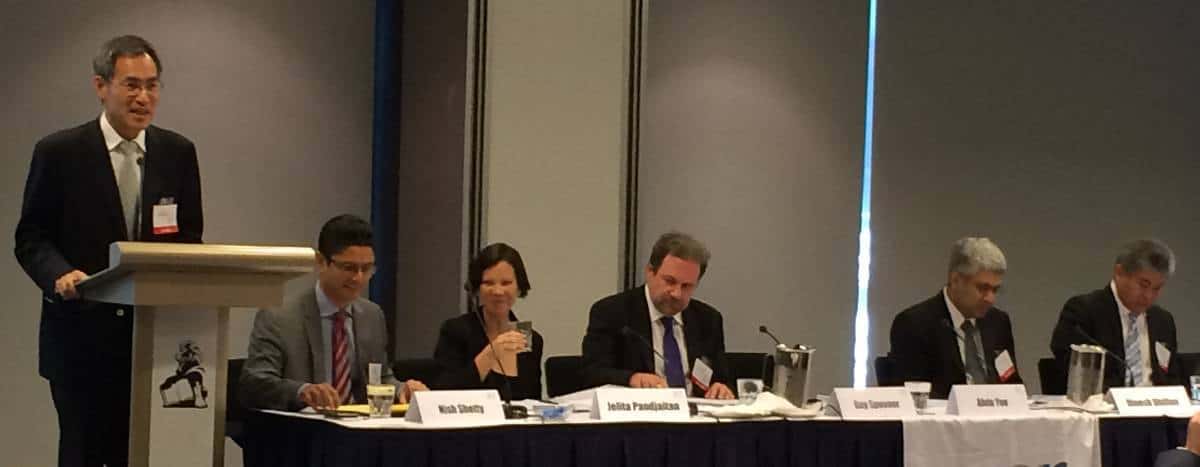By Tom Feissner
Global Arbitration Review is anything but your typical stodgy legal journal. Launched in 2006, it has evolved from simply reporting international arbitration news to making it as well. Today, GAR not only provides its readers with daily arbitration news updates, but conducts surveys and does research on issues that have a direct bearing on the course of international arbitration policy and conduct.
Because networking with one’s peers and keeping abreast of the latest developments in alternative dispute resolution are of great importance to international arbitration practitioners, Global Arbitration Review has come up with an exciting, innovative way to both inform and entertain: GAR Live! This lively, interactive format takes the form of a traveling roadshow where delegates are encouraged to participate in the discussions along with the panelists. This concept has proven so successful that GAR now hosts events regularly in major arbitration centers around the world, including New York, London, Paris, Hong Kong, Dubai, Istanbul, and Singapore.
It has been four years since GAR Live last visited Singapore, and moderators Alvin Yeo, SC of WongPartnership, LLP and Lucy Reed of Freshfields, Bruckhaus, Deringer did an outstanding job of leading panel discussions on a number of topics of special interest to international arbitration practitioners in Singapore. The panels themselves likewise consisted of some of the most distinguished arbitration attorneys in Singapore and the Asia-Pacific region. The conference was held at the Maxwell Chambers alternative dispute resolution center in Singapore’s Central District.
The first session started off with key developments in Singapore arbitration law moderated by Alvin Yeo, which included such topics as third-party funding of arbitration, gas price disputes, financial arbitrations, and treaty-based arbitration in the region. Mr. Yeo then went on to host a discussion concerning a series of cases having to do with whether the Singapore courts are exercising judicial restraint when it comes to enforcement of arbitration awards, or whether they are taking an interventionist approach by applying a de novo standard of review. The general consensus seemed to be that a balanced approach on behalf of the Singapore judiciary would best maintain Singapore’s reputation as a safe seat for conducting arbitrations.
Lucy Reed then moderated a panel discussion concerning the state of arbitration and alternative dispute resolution in India entitled: “India – How Far Has It Come?” While the panelists agreed that there has been a great deal of improvement in the Indian ADR regime, they also were of one mind that a shift in attitude concerning the utility of arbitration as a means of settling disputes needs to occur if India intends to establish itself as a global arbitration hub.

GAR Live Panel – Image by Tom Feissner
The highlight of the day was an Oxford-Union style debate on whether the newly-established Singapore International Commercial Court poses a threat to the continued success of the Singapore International Arbitration Center. A lively exchange then ensued, moderated by Ms. Reed. Professor Michael Pryles and Rashda Rana of 39 Essex Chambers acting as judges of the debate, diplomatically concluded that the SICC poses no threat to the continued success of the SIAC, as they were each created to serve separate and distinct purposes. After closing remarks by Mr. Yeo and Ms. Reed, the delegates adjourned to a reception at Singapore’s China Club, hosted by Clyde & Company.
For more information about GAR, please visit their website at http://www.globalarbitrationreview.com. To schedule a court reporter for an arbitration in Singapore, please call us toll free at (888) 433-3767 or contact us via email at international@planetdepos.com.
